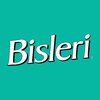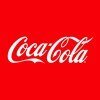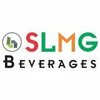Filter interviews by
Pernod Ricard Interview Questions and Answers
23 Interview questions
Implementing effective strategies can significantly reduce wastage in manufacturing, enhancing efficiency and sustainability.
Lean Manufacturing: Adopt lean principles to eliminate waste in processes. For example, Toyota's production system focuses on continuous improvement and waste reduction.
Six Sigma: Utilize Six Sigma methodologies to identify and eliminate defects in manufacturing processes, leading to reduced...
OEE is a metric that measures the efficiency of manufacturing equipment by considering availability, performance, and quality.
Availability: This measures the percentage of scheduled time that the equipment is actually running. For example, if a machine is scheduled to run for 8 hours but is down for 1 hour, the availability is 87.5%.
Performance: This assesses how well the equipment performs compared to its maximum...
I am a motivated sales trainee with a passion for building relationships and driving results in a dynamic environment.
Background in business studies, where I developed strong analytical and communication skills.
Interned at a local retail store, where I increased sales by 15% through effective customer engagement.
Participated in a sales competition at university, where my team won first place for our innovative pit...
Plant KPIs are measurable values that assess the efficiency and performance of manufacturing processes in a plant.
KPIs help track production efficiency, such as Overall Equipment Effectiveness (OEE).
They can measure downtime, like the number of hours machinery is non-operational.
Quality metrics, such as defect rates, indicate the quality of products produced.
Energy consumption per unit produced can be a KPI to ass...
Advanced Excel lookup formulas enhance data retrieval and analysis, improving efficiency in data management tasks.
VLOOKUP: Searches for a value in the first column and returns a value in the same row from a specified column. Example: =VLOOKUP(A2, B2:D10, 3, FALSE)
HLOOKUP: Similar to VLOOKUP but searches for a value in the first row and returns a value from a specified row. Example: =HLOOKUP(A1, A1:E5, 3, FALSE)
IND...
Managed database systems, generated reports, provided technical support, and implemented new technologies.
Managed database systems to ensure data integrity and security
Generated reports for management to analyze business performance
Provided technical support to end users for software and hardware issues
Implemented new technologies to improve efficiency and productivity
Collaborated with cross-functional teams to in...
Conditional sum is used to calculate the sum based on certain conditions, while distinct count is used to count unique values in a pivot table.
Conditional sum can be achieved using functions like SUMIF or SUMIFS in Excel.
Distinct count can be achieved using the COUNTIF function with a unique identifier column.
In a pivot table, you can use the Value Field Settings to choose between sum or count, based on your requi...
Salary negotiation involves discussing compensation to reach a mutually beneficial agreement between employer and employee.
Research industry standards: Know the average salary for your role in your location.
Assess your value: Highlight your skills and experiences that justify your salary request.
Practice your pitch: Rehearse how you will present your case for a higher salary.
Be flexible: Consider other benefits li...
To do prod planned, you need to create a production plan that outlines the tasks, resources, and timeline for completing the production process.
Identify the production requirements and goals
Determine the necessary resources, such as materials, equipment, and manpower
Create a detailed production schedule, including start and end dates for each task
Allocate resources effectively to ensure smooth workflow
Monitor prog...
Air compressor load requirements can be calculated by considering factors such as air demand, duty cycle, and pressure requirements.
Determine the required air demand by assessing the total air consumption of all connected equipment.
Consider the duty cycle, which is the percentage of time the compressor will be running.
Calculate the pressure requirements based on the highest pressure needed for any equipment or pro...
Pernod Ricard Interview Experiences
52 interviews found
I appeared for an interview in Apr 2025, where I was asked the following questions.
- Q1. Sales related and team manegement terget achievement all questions sales related
- Q2. Time management experience
- Ans.
I prioritize tasks, set deadlines, and use tools to manage my time effectively, ensuring sales targets are met consistently.
Utilize a digital calendar to schedule meetings and set reminders for follow-ups.
Prioritize tasks using the Eisenhower Matrix to distinguish between urgent and important tasks.
Set weekly goals and break them down into daily tasks to maintain focus and track progress.
Example: I allocate specific ti...
(2 Questions)
- Q1. Regarding my experience
- Q2. Regarding cost cutting initiatives
(1 Question)
- Q1. Regarding experience
(1 Question)
- Q1. Whether I am interested for the location
Interview Preparation Tips
I applied via Approached by Company and was interviewed in Jul 2024. There were 2 interview rounds.
(2 Questions)
- Q1. Conditional sum or distinct count in pivot
- Ans.
Conditional sum is used to calculate the sum based on certain conditions, while distinct count is used to count unique values in a pivot table.
Conditional sum can be achieved using functions like SUMIF or SUMIFS in Excel.
Distinct count can be achieved using the COUNTIF function with a unique identifier column.
In a pivot table, you can use the Value Field Settings to choose between sum or count, based on your requiremen...
- Q2. Advance Excel formula like lookup formula
- Ans.
Advanced Excel lookup formulas enhance data retrieval and analysis, improving efficiency in data management tasks.
VLOOKUP: Searches for a value in the first column and returns a value in the same row from a specified column. Example: =VLOOKUP(A2, B2:D10, 3, FALSE)
HLOOKUP: Similar to VLOOKUP but searches for a value in the first row and returns a value from a specified row. Example: =HLOOKUP(A1, A1:E5, 3, FALSE)
INDEX-MA...
(2 Questions)
- Q1. Salaray Negosiation process
- Ans.
Salary negotiation involves discussing compensation to reach a mutually beneficial agreement between employer and employee.
Research industry standards: Know the average salary for your role in your location.
Assess your value: Highlight your skills and experiences that justify your salary request.
Practice your pitch: Rehearse how you will present your case for a higher salary.
Be flexible: Consider other benefits like bo...
- Q2. Responsibilties in prevoius organization
- Ans.
Managed database systems, generated reports, provided technical support, and implemented new technologies.
Managed database systems to ensure data integrity and security
Generated reports for management to analyze business performance
Provided technical support to end users for software and hardware issues
Implemented new technologies to improve efficiency and productivity
Collaborated with cross-functional teams to integra...
I appeared for an interview in Feb 2025, where I was asked the following questions.
- Q1. Can you tell me about yourself?
- Ans.
I am a motivated sales trainee with a passion for building relationships and driving results in a dynamic environment.
Background in business studies, where I developed strong analytical and communication skills.
Interned at a local retail store, where I increased sales by 15% through effective customer engagement.
Participated in a sales competition at university, where my team won first place for our innovative pitch.
Ea...
- Q2. What are the details of your learning experience during your summer internship?
- Q3. What are some examples of effective team management practices?
I appeared for an interview in Dec 2024, where I was asked the following questions.
- Q1. What is your motivation for joining the company?
- Ans.
I am motivated to join the company due to its innovative approach, strong values, and opportunities for professional growth.
The company's commitment to sustainability aligns with my personal values, as seen in its recent green initiatives.
I admire the company's reputation for fostering a collaborative work environment, which I experienced during my interactions with the team.
The opportunity for professional development...
- Q2. What is the concept of insecurity?
- Ans.
Insecurity refers to a feeling of uncertainty or anxiety about oneself or one's situation, often stemming from perceived inadequacies.
Insecurity can manifest in personal relationships, where individuals may doubt their partner's feelings or commitment.
In the workplace, an employee may feel insecure about their job performance, fearing they might be replaced.
Social media can exacerbate feelings of insecurity, as individ...
- Q3. What is your working style?
- Ans.
I adopt a structured and collaborative working style, focusing on clear communication and strategic planning to achieve financial goals.
I prioritize organization by using project management tools to track progress and deadlines.
Collaboration is key; I regularly hold team meetings to ensure everyone is aligned on objectives.
I adapt my approach based on the team's needs, whether that means leading discussions or supporti...
Interview Preparation Tips
I applied via Campus Placement
Quantitative , logical , mechanical and production engineering questions
General topics and 8 member in a panel
(1 Question)
- Q1. Basic connect on background
- Ans.
Experienced HR Business Partner with a strong background in talent management and organizational development.
Over 8 years of experience in HR roles, focusing on employee engagement and performance management.
Successfully implemented a new performance appraisal system that increased employee satisfaction by 20%.
Collaborated with leadership to develop training programs that enhanced team productivity and morale.
Led diver...
(1 Question)
- Q1. Subject knowledge
(1 Question)
- Q1. Subject matter knowledge
(1 Question)
- Q1. HR one to one
I applied via Walk-in and was interviewed in Jan 2024. There were 3 interview rounds.
Aptitude test mind focus test
(2 Questions)
- Q1. Your skills are very important do you have any AWS cloud
- Ans.
Yes, I have extensive experience with AWS cloud services, including EC2, S3, and IAM management.
Proficient in launching and managing EC2 instances for scalable computing.
Experience with S3 for secure and durable storage solutions.
Skilled in configuring IAM roles and policies for secure access management.
Familiar with AWS CloudFormation for infrastructure as code.
Knowledge of AWS Lambda for serverless computing and auto...
- Q2. AWS cloud, Linux, python, network
(3 Questions)
- Q1. Any update your skills and profile in interview process
- Q2. Salary discussion
- Q3. Salary increment
Interview Preparation Tips
- Q1. Basic Excel formula
- Q2. Advance Excel formula
- Ans.
Advanced Excel formulas enhance data analysis and manipulation, enabling complex calculations and efficient data management.
VLOOKUP: This function searches for a value in the first column of a range and returns a value in the same row from a specified column. Example: =VLOOKUP(A2, B2:D10, 3, FALSE)
INDEX-MATCH: A powerful combination that allows for more flexible lookups than VLOOKUP. Example: =INDEX(C2:C10, MATCH(A2, B...
- Q1. Whats is plant KPI.?
- Ans.
Plant KPIs are measurable values that assess the efficiency and performance of manufacturing processes in a plant.
KPIs help track production efficiency, such as Overall Equipment Effectiveness (OEE).
They can measure downtime, like the number of hours machinery is non-operational.
Quality metrics, such as defect rates, indicate the quality of products produced.
Energy consumption per unit produced can be a KPI to assess s...
- Q2. Proficiency for operation
Top trending discussions






Pernod Ricard Interview FAQs
The duration of Pernod Ricard interview process can vary, but typically it takes about less than 2 weeks to complete.
Tell us how to improve this page.
Pernod Ricard Interviews By Designations
- Pernod Ricard Executive Production Interview Questions
- Pernod Ricard Blending Executive Interview Questions
- Pernod Ricard MIS Executive Interview Questions
- Pernod Ricard Sales Manager Interview Questions
- Pernod Ricard Territory Sales Manager Interview Questions
- Pernod Ricard Regional Sales Executive Interview Questions
- Pernod Ricard Manufacturing Executive Interview Questions
- Pernod Ricard Sales Trainee Interview Questions
- Show more
Interview Questions for Popular Designations
- Executive Production Interview Questions
- Blending Executive Interview Questions
- Executive Interview Questions
- Team Lead Interview Questions
- Software Engineer Interview Questions
- Business Analyst Interview Questions
- Associate Software Engineer Interview Questions
- Senior Software Engineer Interview Questions
- Show more
Overall Interview Experience Rating
based on 59 interview experiences
Difficulty level
Duration
Interview Questions from Similar Companies
Pernod Ricard Reviews and Ratings
based on 908 reviews
Rating in categories
3-9 Yrs
Not Disclosed
10-15 Yrs
Not Disclosed
4-9 Yrs
Not Disclosed
|
Territory Sales Manager
228
salaries
| ₹13.9 L/yr - ₹24.9 L/yr |
|
Sales Executive
228
salaries
| ₹2.2 L/yr - ₹7 L/yr |
|
Assistant Manager
186
salaries
| ₹13 L/yr - ₹20.5 L/yr |
|
Regional Sales Executive
111
salaries
| ₹8 L/yr - ₹16 L/yr |
|
Executive Production
92
salaries
| ₹6 L/yr - ₹11.5 L/yr |

Varun Beverages
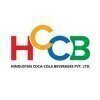
Hindustan Coca Cola Beverages
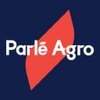
Parle Agro

AB InBev India
- Home >
- Interviews >
- Pernod Ricard Interview Questions



